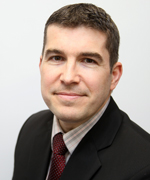Local Resilience Forums and Emergency Planning: An interview with Professor Duncan Shaw
Duncan Shaw is Professor of Operations and Critical Systems at The University of Manchester’s Alliance Manchester Business School, and honorary professor at HCRI. As a leading expert in the field, his research led the formation of the international standard ISO 22319, which is used worldwide for planning the involvement of spontaneous volunteers in emergency response and recovery.
Duncan also has an active role in the COVID-19 Global Resilient Cities Network (GRCN) (The Rockefeller Foundation), which is building an international effort to share learning for cities. Before the COVID-19 crisis unfolded in the UK, Duncan worked with the Argentinian, Chilean and Serbian governments on preparing their emergency response by helping them to develop volunteer plans for a major incident, including a pandemic response.
When asked about the scope of his involvement with Argentina and Chile, he adds:
“Typically, that’s been with regards to things like wildfires, and minor earthquakes.
I was due to be in both of those countries, helping them develop their volunteer plans and I was going over to help the governments to prepare for if a big emergency hit which unfortunately it did, but in the UK.
The sorts of things government are doing in the UK in response to COVID-19 look very similar to what they’re doing in Chile and Argentina. But, when you get below the surface, local government do things differently. Even in the UK different local authorities operate quite differently. We see a very similar picture with volunteers emerging and being used, and we see the protecting of vulnerable people. That means that they’ve got to distribute food and medications and provide welfare.”
Since then, he has been working with several local resilience forums, including Greater Manchester, Thames Valley and Essex on how to maximise involvement with their new volunteer workforce.
Duncan highlights that local resilience forums are used for multi-emergencies and are multi-agency. They oversee planning for major incidents going, including dealing with pandemics, terrorist attacks, and major floods.
“Local resilience forums include the people who are overseeing every part of the emergency response to COVID-19 including parts of the [Nightingale] hospital in Manchester and the organising of the volunteers.”
When asked about the recovery and planning of their response, he said:
“I sit on the tactical coordination group which focus on the response to COVID-19 . Recovery is the process of how we re-build and support Greater Manchester to come out of this standing tall. We are aware this is done in a national programme, so while Greater Manchester will be going through a recovery process so are other parts of the country and indeed every part of the world affected by COVID-19.
Governments are starting to think about recovery, but when we’re talking about recovery, we are aware that lots of people have been affected by this. They’ve lost loved ones, they’ve lost businesses, they’ve lost jobs, so we’re aware for them that recovery is a very personal matter.”
Duncan is involved in the multi-disciplinary university collaboration with HCRI academics, Dr Ayham Fattoum , and Dr Nathaniel O’Grady. The project involves bringing together international lessons on recovery from COVID-19 and making those accessible to those who sign up to their weekly briefing.
He adds:
“We’ve identified lessons of how the world is coping with COVID and how governments are responding, and our programme is talking to the highest level of government in the UK and internationally. We are informing guidelines on recovery and re-building.”
He clarified that this is a team effort to bring together these lessons and disseminate them to governments. The lessons are being disseminated through the Global Cities Resilient Network / Rockefeller / World Bank and seeks to change how governments think about and implement recovery and rebuilding. He runs the Cabinet Office’s national seminars on volunteers and is leading on a series of Cabinet Office seminars on recovery for local government.



0 Comments